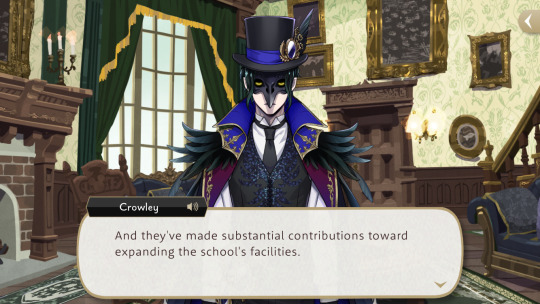#Also I had to pay estimated taxes
Text
cute store downtown-- got some things
Some really good chocolate oreo marshmallow ice cream
#Small town#Rivertown#Wisconsin#Ice cream#Store#Earrings popcorn and lab coaster#Ice cream store also had earrings#The coaster for my youngest sister#earrings for middle#I think best to get gifts whenever you see sth good#Xmas and bdays a long ways away#Just wish I could find sth for dad#But he's hard to find for#Now I have to enter $ so doesn't go down too much after paying for clothes card#Which I couldn't figure out for like an hour yesterday#I had to register card? When I already had a account#Also I had to pay estimated taxes#So...#They paid me for next time too#I cant but anything else#I need more even though this is a lot a lot of expenses even without paying for car!#Well I need to enjoy what i have. Don't panic
1 note
·
View note
Video
youtube
10 Worst Things About The Trump Presidency
Donald Trump left office with the lowest approval rating of any president ever. But some people now seem to be suffering from amnesia.
Let me jog your memory. Here are 10 Worst Things About the Trump Presidency — in no particular order.
#1. Trump fueled division and sparked a record uptick in hate crimes.
#2. Murder went way up under Trump. He presided over the largest ever single-year increase in homicides in 2020. A number of factors might have contributed to that, but a big one is…
#3. Gun sales broke records under Trump, who has bragged about how he “did nothing” to restrict guns as president in spite of…
#4. Under Trump, America suffered more than 1,700 mass shootings.
#5. Trump said there were "very fine people" among the neo-Nazis in Charlottesville.
I’m halfway to ten. If you think I’m missing something big, leave it in the comments.
#6. Trump allied himself with the Proud Boys, a violent hate group who helped orchestrate the Jan 6 Capitol attack.
#7. Trump’s not wrong when he says…
TRUMP: I got rid of Roe v. Wade.
It is entirely because of Trump’s judicial appointments that 1 in 3 American women of childbearing age now lives in states with abortion bans.
#8. One of Trump’s Supreme Court justices was Brett Kavanaugh, a man accused of sexual assault by multiple women.
#9. Trump’s White House interfered in the FBI’s investigation of Brett Kavanaugh’s alleged sexual assaults.
And now: #10. Trump has been convicted of committing 34 felonies while in office. The criminally false business filings he got convicted for in New York? All of them were committed while he was president.
I’m sorry, did I say the 10 Worst Things About the Trump Presidency? I meant 15.
#11. Trump’s failed pandemic response is estimated to have led to hundreds of thousands of needless deaths. By the time Trump left office, roughly 3,000 Americans were dying of covid every day. That’s a 9/11-scale mass casualty event every single day. How did Trump screw up so badly?
#12. Trump’s White House discarded the pandemic response playbook that had been assembled by the Obama administration.
#13. Trump disbanded the National Security Council’s pandemic response team.
#14. Trump repeatedly lied about the danger of covid, saying it was no worse than the flu or that it would go away on its own.
But behind closed doors, Trump admitted he knew covid was deadly.
#15. Trump promoted fake covid cures like hydroxychloroquine and even injecting people with disinfectants.
After Trump’s “disinfectant” remarks, poison control centers received a spike in emergency calls.
That’s fifteen things. Should I keep going? Ok, I’ll keep going. The 20 Worst Things About the Trump Presidency.
#16. Trump presided over a net loss of 2.9 million American jobs — the worst recorded jobs numbers of any U.S. president in history.
#17. Trump profited off the presidency, making an estimated $160 million from foreign countries while he was president.
#18. Trump also billed the Secret Service over $1 million for the privilege of staying at his golf clubs and other properties while they protected him. That’s your money!
#19. Trump caused the longest government shutdown in U.S. history when he didn’t get funding for his border wall, which he said Mexico was going to pay for.
#20. Under Trump, the national debt increased by about 40% — more than in any other four-year presidential term — largely because of his tax cuts for the rich and big corporations.
You didn’t really think I was stopping at 20, did you? We’re going to 25 —
#21. Trump separated more than 5,000 children from their parents at the border, with no plan to ever reunite them, putting babies in cages.
#22. The Muslim Ban. Yes, Trump really did try to ban Muslims from entering the country.
#23. Trump sparked international outrage by moving the American Embassy in Israel to Jerusalem while closing the U.S. mission to Palestine.
#24. Trump tasked his son-in-law Jared Kushner with drafting a potential Middle East “peace plan” with zero Palestinian input.
#25. And finally, Trump recognized Israel’s occupation of the Goh-lahn Heights, which is considered illegal under international law.
So there you have it, folks: The 25 Worst — Wait a minute. Wait a minute. Did I mention the impeachments? We’ve got to do the impeachments. Let’s go to 30.
#26. Trump broke the law by trying to withhold nearly $400 million of U.S. aid for Ukraine in an effort to extort a personal political favor from Ukraine’s Pres. Zelensky. Trump wanted Zelensky to interfere in the 2020 election by announcing an investigation into the Bidens. Delaying this aid to Ukraine weakened Ukraine and strengthened Russia.
#27. Trump personally attacked and ruined the careers of everyone who stood in the way of his illegal Ukraine scheme, including Ambassador Marie Yovanovitch and Lt. Colonel Alexander Vindman.
#28. To cover up the scheme, Trump ordered the White House and State Department to defy congressional subpoenas.
#29. For these reasons, on December 18, 2019, Trump became the third U.S. president to be impeached. He was charged with Abuse of Power and Obstruction of Congress.
#30. Even while he was being investigated for trying to get Ukraine to interfere in the U.S. election, Trump publicly called for China to interfere in the election.
So those are the 30 Worst Things —
I’ll go to 35.
#31. Long before Election Day, Trump started making false claims that the election would be rigged.
#32. After losing, Trump falsely claimed the election was stolen, even though his own inner circle, including his campaign manager, White House lawyers, and his own Justice Department and attorney general told him it was not.
#33. Trump kept telling his Big Lie even after more than 60 legal challenges to the election were struck down in court, many by Trump-appointed judges.
#34. Trump ordered the Department of Justice to falsely claim that the election “was corrupt.”
#35. Trump and his allies used threats to pressure state leaders in Arizona and Georgia to falsify the election results.
We may go to 40.
#36. When none of the previous schemes worked, Trump and his allies produced fake electoral votes cast by fake electors in multiple swing states. His former White House chief of staff and Rudy Giuliani are among the many members of his inner circle who have been criminally indicted for this scheme.
#37. Trump tried to bully Vice President Pence into obstructing the certification of the election.
#38. Trump invited a mob to the Capitol on Jan 6 with his “be there, will be wild” tweet.
#39. Sworn testimony alleges that when Trump was warned that members of the crowd were carrying deadly weapons, he ordered security metal detectors to be taken down.
#40. Knowing the crowd had deadly weapons, he ordered them to go to the Capitol and…
TRUMP: …fight like hell.
#41 — Yes, yes, I know, bear with me.
Trump betrayed his oath to defend the nation by doing nothing to stop the Jan 6 violence. Instead, according to witness testimony, he sat and watched TV for hours.
#42. On January 13, 2021, Trump became the only president ever to be impeached twice. This time he was charged with incitement of insurrection. It was a bipartisan vote.
#43. The majority of senators — 57 out of 100 — voted to convict Trump, including 7 Republican senators.
So that’s the two impeachments and the Big Lie, but wait, we haven’t dealt with Russia, right? So we’re going to 50.
#44. In a likely obstruction of justice, Trump pressured then FBI Director James Comey to stop the FBI’s investigation into Trump’s National Security Adviser, Michael Flynn. This was documented in the Mueller report.
#45. When Comey didn’t bend to Trump’s will, Trump fired him.
#46. Trump tried to shut down the Mueller investigation by ordering White House Counsel Don McGann to fire Mueller. McGann refused because that would be criminal obstruction of justice.
#47. When news got out that Trump tried to fire Mueller, Trump repeatedly told McGann to lie — to Mueller, to press, to public — and even create a false document to conceal Trump’s attempt to fire Mueller.
#48. Trump ordered his staff not to turn over emails showing Don Jr. had set up a meeting at Trump Tower before the 2016 election with representatives of the Russian government.
#49. Trump convinced Michael Cohen to lie to Congress about Trump’s plans to build a Trump Tower in Moscow, and Cohen served prison time for lying to Congress.
#50. Trump was not charged for criminal obstruction of justice because it’s the Justice Department’s policy not to indict a sitting president, but more than a thousand former federal prosecutors who served under both Republicans and Democrats, signed a letter declaring there was more than enough evidence to prosecute Trump.
So those are the 50 Worst Things About the Trump Presidency. Now I could go on…
And I will! The 75 Worst Things About the Trump Presidency.
#51. Trump said he’d hire only the best people, but…
His campaign chair was convicted of multiple crimes.
So was one of his closest associates.
His deputy campaign chair pleaded guilty to crimes.
So did his personal lawyer
His National Security Adviser
The Chief Financial Officer of his business
A campaign foreign policy adviser
And one of his campaign fundraisers.
They all committed crimes, and Trump pardoned most of them.
#52. Trump said he’d drain the Washington swamp. But he appointed more billionaires, CEOs, and Wall Street moguls to his administration than any administration in history
#53. Trump intervened to get his son-in-law, Jared Kushner top-secret clearance after he was denied over concerns about foreign influence.
#54. Trump hosted a Russian Foreign Minister to the Oval Office, where Trump revealed top-secret intelligence.
Oh, and Trump’s economic policies!
#55 Trump promised that the average American family would see a $4,000 pay raise because of his tax cuts for the wealthy and big corporations. How’d that work out? Did you get a $4,000 raise? Of course not! Nobody did!
#56. Trump vowed to protect American jobs, but offshoring increased and manufacturing fell.
#57. Trump said he would fix America’s infrastructure, but it never happened. He announced so many failed “infrastructure weeks” they became a running joke.
#58. Trump said he would be “the voice” of American workers, but he filled the National Labor Relations Board with anti-union flacks who made it harder for workers to unionize.
#59. Trump’s Labor Department made it easier for bosses to get out of paying workers overtime, which cheated 8 million workers of extra pay.
#60. Trump repeatedly suggested he might serve more than two terms in violation of the Constitution — and continues to do so.
#61. Trump called Haiti and African nations “shithole” countries.
#62. Trump tried to terminate DACA, which protects immigrants brought to the U.S. as children. Luckily this was struck down by the courts.
#63. Trump called climate change a “hoax.”
#64. Trump pulled out of the Paris Climate Agreement.
#65. Trump rolled back more than 100 environmental protections.
#66. Every budget Trump proposed included cuts to Social Security and Medicare.
#67. Trump tried (and failed) to repeal the Affordable Care Act, which would have resulted in 20 million Americans losing insurance. And striking down the ACA’s protections for the roughly 130 million people with pre-existing conditions could have driven up their insurance premiums or led to a loss of coverage.
#68. Trump made it easier for employers to remove birth control coverage from insurance plans.
#69. By the end of Trump’s term, the number of people lacking health insurance had risen by 3 million.
#70. Trump lied. Constantly. He made 30,573 false or misleading claims while president — an average of 21 a day, according to Washington Post fact-checkers.
#71. Trump allegedly took hundreds of classified documents on his way out of the White House, reportedly including nuclear secrets, which he then left unsecured in various parts of Mar-a-Lago, including a bathroom. He was even caught on tape showing them off to people.
#72. Trump seriously discussed the idea of nuking a hurricane.
#73. When Hurricane Maria hit Puerto Rico, Trump delayed $20 billion of aid and allowed Puerto Rico to be without power for 181 days.
#74. Trump suggested withholding federal aid for California wildfire recovery and said the solution was to “clean” the “floors” of the forest.
#75. Trump pulled out of the Iran deal, placing Iran on a path to developing nuclear weapons.
Honestly, there’s so much more, from exchanging “love letters” with North Korea’s brutal dictator to publicly denigrating a Gold Star military widow and making her cry, to the way he attacked journalists, to late night tweet binges.
Look, I can understand why a lot of people want to block all of this out of their memories. But we cannot afford to forget just how terrible Trump’s time in the White House was for this nation.
And we sure as hell can’t afford to put him back there.
771 notes
·
View notes
Note
⭕️👋Hi I’m new, I really like your character analysis, world lore analysis etc,…I think they’re very accurate and provide more insight into the twisted wonderland world,
do you think NRC gets enough funding cause they’ve been losing to RSA for like almost 100 years now and the Magift incident where the recruiter’s and scouts probably didn’t really pay attention to most of the players cause of Malleus .I know they probably get funding and tuition and stuff from affluent parents who care about the quality of education & environment of their children but is that really enough? Is Crowley secret Stressed about funding cause of their losing streak to RSA???
I just wondered what your thoughts were on the matter

Hello and thank you very much ^^ It always warms my heart to hear that people enjoy my more analytical writings!
Now to answer your question, I don’t think NRC is hurting for money. Like, at all.
You did bring up a fair point about NRC’s almost a 100 year loss streak to RSA + the lack of interested Spelldrive/Magical Shift scouts in book 2, but that’s not enough of the big picture. RSA is only one rival magic school out of several. Just because NRC is not doing well against one other school doesn’t mean that NRC is suddenly deemed “lesser”—NRC is still considered a top arcane academy and eclipses other magical institutions like Noble Bell College. In regards to the pro recruiters, I don’t think it has a huge impact?? Sports is only one sector at NRC; they’re still doing relatively well outside of it (such as in academics, extracurriculars, and connections for internships) in the grand scheme of things. Things like not winning VDC and not being noticed by scouts seems to only really impact the career prospects of students who were interested in the entertainment/sports industries; I doubt that this would seriously hurt whatever funding NRC is receiving.
Night Raven College is a private school, so they are most likely receiving money from tuition and not the government. Though tuition is not explicitly mentioned in TWST (at least not that I am aware of), if we assume the average cost for one student to attend a British boarding school—for which NRC is modeled after—that means 25,000 pounds per person, PER YEAR. Let us assume that NRC had only 800 students (this is the rough estimate TWST provides us). That means, from one year’s worth of tuition alone, the school is raking in 20,000,000 pounds or 4,058,310,000 madol. Note that this is just money in, not yet factoring for expenditures, taxes, etc.
The school also receives 10% of Mostro Lounge’s proceeds, and while we cannot put an exact number to that, we do know that most menu items range from 600 to 1500 madol. The lounge must also make significant enough money to pay for its ingredients, nice silverware (something which Azul stresses to give customers a high class experience), and even provide pay to workers (Ruggie would not be doing labor for free and refers to his time at Mostro Lounge as “a job”; see: his Ceremonial Robes vignettes). While this doesn’t make up a large part of NRC’s money, it’s still a nice little bonus to account for.



NRC also has many, MANY wealthy students, including literal celebrities and royalty. In fact, the upper middle class to flat-out rich make up the majority of the main cast (close to like 70-75%). If this is also the case for the regular mob students, then there are many other ways for the school to get huge donations. In the main story alone, two significant donations are mentioned: Kalim's dad gave enough money for NRC to completely renovate Scarabia and the Shroud parents paid for all the damages caused to the school's buildings. Additionally, Crowley says that the Shrouds made "substantial contributions toward expanding [NRC's] facilities."
Please note that this is just donations from current students’ families. Think about potential donations coming from NRC alumni too!!



It should be noted that NRC has the financial power to spend liberally, and no one really says that this will put the school in a touch spot. For example, Crowley literally buys up Sam's entire stock of goods during Ghost Marriage... and if you know anything about Sam, it's that he can magically keep things "IN STOCK NOW!!" Crowley even indicates in one of his voice lines that he is in constant competitions to buy out Sam's stock and has scarcely managed to one-up him--so the fact that Crowley does buy out Sam during an event is meaningful and speaks to how much of the school's money he is throwing to save it. He also tells Sam to bill the school for the cost of the fairy dust in Fairy Gala.



Both times, Crowley complains about how he would rather not spend money, but he does so anyway. This in of itself does NOT prove that NRC is in need of money, this is just proof of Crowley's cheapness. (We see many other examples of this greed and stinginess of his; he guilts Yuu for spending money on them, constantly tries to get free food and souvenirs from his students, and cuts costs for Halloween candy.) If NRC were truly hurting financially though, then they would not be able to throw lavish events or donate back to the community, both of which still happen multiple times. For example, NRC holds a huge Halloween event every year in which they open their campus to outsiders. This event is entirely free and involves a budget large enough for each dorm to create intricate decorations and costumes for 800ish students. There is also enough money to throw a celebration party for the students at the end of it—and let’s remember, NRC has the money to afford five star ghost chefs to regularly cater, serve in the cafeteria, AND teach their Culinary Crucibles/Master Chef courses.
While explaining the nature of the Halloween events, Crewel cites that NRC has survived this long in part due to the "While explaining the nature of the Halloween events, Crewel cites that NRC has survived this long in part due to the "understanding, cooperation, and subsistence of Sage's Island locals." This implies that the immediate community on the island also supports NRC in some ways. Perhaps it isn't financially, but it's clear that NRC still has social capital and a good reputation in spite of its losses to RSA.



In Port Fest, Crowley states that setup, food supplies, and all other expenses will be covered by the school. Half of the proceeds will then be donated to charity and the other half will be granted to the students to celebrate their hard work. Again, would NRC be giving away this money if they really needed it for the institution itself? They're not obligated to give money to the students, yet Crowley easily agreed when Azul asked for an incentive.



And let's not forget the school cultural festival, which was largely open for the public to attend. If they choose to spend on additional things (such as food and drink or VDC tickets, which are a "hot commodity"), that's on the individual. The school itself is hosting the event for free.
Yuu is offered a large sum of money (if the NRC tribe wins VDC)... and Ramshackle renovations (from Crowley) in book 5 in exchange for letting the boys host their training camp in their dorm. Look at how old and run-down Ramshackle is; there is no doubt that such repairs would be pretty expensive—but Crowley doesn't complain about the cost, he's not above bribing someone to make himself and his school look good.
Crowley caring about his reputation isn't new either, it's a pattern. We see him getting upset at NRC's loss in book 5 and lamenting bad publicity/being excited about good publicity in numerous events (Ghost Marriage, Wish Upon a Star, etc.) The school has been under his care for a long time, so naturally he will feel proud and/or slighted whenever NRC is involved.
This leads me to the conclusion that Crowley, the figurehead and headmaster of NRC, and his own personality quirks are being misconstrued as an indication that NRC is in a bad financial spot. His own fixation on triumphing over their rival school, acquiring and maintaining material goods for himself, and wanting positive attention do not reflect the state of the school. Notice how no one but Crowley whines about the financials and how while Crowley still complains about spending money, he has no qualms with spending lavishly himself on school events and holidays. This means NRC has money to spare, but Crowley is just stingy about how those funds are allocated.
#twisted wonderland#twst#Dire Crowley#disney twisted wonderland#disney twst#book 5 spoilers#Yuu#notes from the writing raven#question#fairy gala spoilers#ghost marriage spoilers#port fest spoilers#wish upon a star spoilers#Divus Crewel#terror is trending spoilers#ruggie ceremonial robes vignette spoilers#Ruggie Bucchi#book 2 spoilers#twst analysis#twisted wonderland analysis
135 notes
·
View notes
Text
If Taylor Swift Had Endorsed Donald Trump
Democrats would scorn her business savvy, cap her ticket prices, and fret over her huge carbon footprint.
Wall Street Journal
By Allysia Finley
Forbes estimates Taylor Swift’s net worth at $1.3 billion. Despite her liberal leanings, the singer-songwriter has amassed her wealth the old-fashioned way: through hard work, talent and business savvy. Her endorsement of Kamala Harris last week is rich considering she owes her success to the capitalist system the vice president wants to tear down.
“The way I see it, fans view music the way they view their relationships,” Ms. Swift wrote in a 2014 piece for the Journal. “Some music is just for fun, a passing fling. . . . Some songs and albums represent seasons of our lives, like relationships that we hold dear in our memories but had their time and place in the past. However, some artists will be like finding ‘the one.’ ” She has become “the one” for hundreds of millions of fans worldwide with lyrics that chronicle relationship woes women commonly experience.
Ms. Swift took advantage of her ardent fan base in 2014 by removing her catalog from Spotify in a bid for higher royalties. “Valuable things should be paid for. It’s my opinion that music should not be free,” she explained. “My hope for the future, not just in the music industry, but in every young girl I meet, . . . is that they all realize their worth and ask for it.”
She also criticized Apple Music for not paying artists during the streaming service’s free trial, prompting the company to change its policy. As she jeers in a hit song, “Who’s afraid of little old me?” Apparently, Big Tech companies.
Last year she reportedly raked in $200 million from streaming royalties on top of the estimated $15.8 million she grossed per performance during her recent “Eras” tour. Some fans have shelled out thousands of dollars on the resale market to see Ms. Swift perform. Americans have even traveled to Europe when they couldn’t get tickets in the U.S.
Her fan base may be more loyal and enthusiastic than Donald Trump’s. JD Vance scoffed at the idea that the star’s endorsement of Ms. Harris could influence the outcome of the election. The “billionaire celebrity,” he said, is “fundamentally disconnected from the interests and the problems of most Americans.” Maybe, but she certainly taps into the problems of young women.
Democrats hope to use Ms. Swift’s endorsement to drive them to the polls. But it isn’t difficult to imagine what the left would be saying about her had she endorsed the Republican antihero. It might go something like this:
The billionaire has gotten rich by ripping off fans, avoiding taxes and harming competitors. Time for the government to break her up. Unlike rival artists, Ms. Swift writes, performs and owns her compositions. This vertical integration allows her to charge exorbitant royalties and ticket prices.
Tickets for her “Eras” tour on average cost about $240. That’s merely the price for admission—not including food, drink or Swiftie swag. VIP passes that include memorabilia go for $899. How dare she make young women choose between paying for groceries or rent and going to a concert.
The Federal Trade Commission must cap Ms. Swift’s ticket prices at a reasonable price—say, $20—and ban her junk fees. Concertgoers shouldn’t have to pay $65 for an “I Love You It’s Ruining My Life” sweatshirt.
Her romance with Kansas City Chiefs tight end Travis Kelce also unfairly boosts their star power, letting them charge more for endorsements. As Ms. Swift writes in one song, “two is better than one.” Mr. Kelce reportedly signed a $100 million podcast deal with Amazon’s Wonderly. By breaking up the couple, the government could reduce their royalties and ticket prices.
Ms. Swift, the self-described “mastermind,” also dodges taxes on her “full income,” which includes some $125 million in real estate and a music catalog worth an estimated $600 million. “They said I was a cheat, I guess it must be true,” Ms. Swift acknowledges in her song “Florida!!!”
Under the Biden-Harris administration’s proposed billionaire’s tax, she would have to pay a 25% levy on the $1 billion increase in her fortune since 2017. But that isn’t enough. Ms. Swift should also have to pay taxes on the appreciating value of her “name, image and likeness,” which the Internal Revenue Service considers an asset.
How much is her brand worth? Easily billions. She might say, as she does in a song, that her “reputation has never been worse.” True, Miss Americana’s image took a hit after reports that her private-jet travel in 2022 emitted 576 times as much CO2 as the average American in a year. When Ms. Swift sings, “It’s me, hi, I’m the problem, it’s me,” she’s correct. She and her fat-cat friends are what’s wrong with America.
Appeared in the September 16, 2024, print edition as 'If Taylor Swift Had Endorsed Donald Trump'.
#Taylor Swift#swifites#eras tour london#TS13#trump#president trump#trump 2024#repost#donald trump#america first
67 notes
·
View notes
Text
10/29/23
This area is a death sentence without transportation. I'm running out of food, I can't get my prescriptions, can't flee in an emergency, and me and Syd have been freezing for like, a month, aside from the past two days because it's been surprisingly warm out for October. But November is around the corner, and it's gonna get cold. Fast.
I don't have the funds to repair my van, or the furnace.
Eventually, I'm gonna go homeless if the taxes aren't paid, but the van and furnace are extremely pressing matters right now.
If you can afford to donate, I'd appreciate anything you can spare. If you can't, that's okay. You can still help by sharing this campaign! Please don't donate if you can't afford to, but please SHARE no matter what!
OUR SURVIVAL DEPENDS ON IT. YES, I AM BEGGING. I'M TERRIFIED.
Gfm requires at least $5 donation, so if you can't swing that, you can send less to:
ven.mo: https://account.venmo.com/u/rroche90
pay.pal: [email protected]
Edit, 11/7/23: And we also don't have hot water now either. When the plumber came to give me an estimate on the furnace, he found that the hot water heater had a bad leak, so that was turned off to reduce damage.
Edit, 11/12/23: Septic problems now, too. Sinks are backing up. Woo! Still no heat, btw. It's been a month without heat and it's getting colder. Friend bought Syd a bigger hospital cage, but it hasn't arrived yet, so poor girl has to continue to suffer. Still no transportation, either. HEAP has said they'll pay half the furnace bill if I'm on the deed, which I can't and won't do until the taxes are paid off. I'm not about to inherit that debt.
@sydthetiel is being kept in a tiny hospital cage in my office with a space heater. Not ideal, but it's keeping her warm at least.
We're really not okay.
Edit, 11/16/23: Still no heat or hot water. Plumber isn't even actually getting back to us lmao. Mechanic got back to us, though, and they've found that the brake lines are rusted and need to be replaced. They want an extra $3500 for that. So it'd be roughly $6,000 to get my van repaired. Or I can just fix what I can fix at $2,000 and take my chances with rusted brake lines, and be an accident waiting to happen because I'm desperate to not be trapped in a freezing house with no meds or food or water lmao. Or I just don't get to have transportation back. Or I have to buy a new used vehicle, for like, $15,000+. So... mostly there's just no hope left for me. I'm ready to just give up. It's too much to fix, and my odds of survival are at 0 anyway. I won't last the winter here, and I can't even leave.
Edit, 11/22/23: That plumber ghosted us. We got a new plumber. He came out yesterday and got the furnace rigged to work, just in time. As he pulled into the driveway, it started sleeting and snowing. Throughout the night. The problem is, the furnace isn't fixed, so it could crap out at any moment. The water heater is off, but still leaking, so it's time sensitive to have it replaced. But he's pointed out another problem with that; Rex's hoarding. We need to be able to get rid of enough of her crap to get the equipment in and out. He can do it, but it's gonna cost. Additionally, the chimney isn't in great shape so we have to do something about that, or it's going to defeat the purpose of these replacements. Waiting for the quotes on everything.
As for my van, it's ready to be picked up, without the brake lines being finished. We found a new place that said they'd charge between $700-$1000 to replace the brake lines. A lot better than $3,500, but still not money I have. So until I can do that, it's a risk driving it, but I really don't have a choice. I can't stay living like this, trapped in the middle of nowhere. It's defeating me mentally and physically. But there's another problem too, that won't be covered under warranty. A knock sensor. No idea how much it'll cost yet, but it needs to be replaced in order for the van to pass inspection in December.
I'm feeling incredibly hopeless. I can't even run, because I have Syd, and I'm not going to abandon her. She's my kiddo. She's in a bigger cage now, happily. But I'm at such a loss of what to do. We're not going to survive the winter here without these repairs, and fleeing is going to be really difficult, and I may not have a home to come back to in Spring if I did manage to leave for the winter with Syd.



159 notes
·
View notes
Note
what's happening in argentina?
I don't fault you for the broad question because I'd ask too, but I need you to know that as a non-smoker I've never felt so strongly the need for a cigarette as I did just now thinking about answering this question. But I'll do my best.
In November of last year, the country elected Javier Milei as president. He would swear into office the next month. Javier Milei is a self-identified anarcho-capitalist and libertarian, although he states he is a minarchist in the short term (meaning he thinks the only functions the State should serve are those of law enforcement: no public education, social development, market regulations, etc etc). Some of his most controversial campaign statements included projects to legalise the free and unregulated sale of organs, and, along with his vice-president Victoria Villarruel (who in her youth organised visits to Jorge Rafael Videla in prison), apologia for the 1976 military dictatorship by revindicating the theory of the two demons (fair warning that from what I skimmed that article is biased in favour of the theory) and casting into doubt the estimated 30.000 victims of state terrorism (torture, disappearance followed by death) (also warning that that article uses the name the military junta gave this process) during its duration.
Since he took over six months ago, the population's purchasing power has dropped by 38%, plunging millions of people below the line of poverty. In stark contrast to this, Milei has been travelling around the world using public funds to visit his ultraright idols; most notably, Trump, who is not the political leader of any country at the moment (making his trip to see him a personal visit and not a diplomatic one, thus invalidating his arguments for using our money to go there).
On the subject of diplomacy, his government has been swinging quite a lot of bats at hornets' nests, accusing China and Brazil of communism and insulting the wife of the president of Spain. All of this is an international relations nightmare that will take endless apologies to undo.
Another interesting resolution deregulates the operations of foreign companies, SPVs, and offshore companies (article in Spanish), with the stated goal of attracting investments. Those types of companies have historically been used to conceal illicit activity, so resolutions in that vein pave the way to effectively turn Argentina into a fiscal paradise. This isn't the only problem they pose (offshore companies don't pay taxes, so there'd be a loss in the public sector, for example), but it is the most worrying to me because they also eliminated restrictions for Sociedades de Acciones Simplificadas (simplified stock companies), most of which have historically been used to commit crimes among which is the drug trade. Once you have narcos in your country, there's no taking it back--Argentina would be at real risk of ceasing to exist as we know it.
This administration is also slashing public spending, resulting in some universities suspending their activities temporarily. They also failed to deliver oncological medicine, depriving cancer patients of assistance the state is obligated to provide. As a result of this, several people have died already. In this climate of extreme poverty, soup kitchens have been shutting down en masse due to the withdrawal of state funding, and laws that protected tenants' rights and regulated rent prices have been severely modified to the detriment of the tenants.
The violent decrease in public spending also resulted in thousands of state workers being fired overnight. The attack is especially centred on state organisations that promote the arts or whose purpose is to fight discrimination. On this subject, 10% of the transgender and travesti workers who had their positions guaranteed by the law were fired illegally, and government members are outspoken about their opposition to this law--which isn't surprising. Diana Mondino, the current chancellor, has compared same-sex marriage to "the right to having lice" while she held a position in Congress. Ricardo Bussi, a current legislator, compared homosexuality to disability in October 2023. Coming to this year, Francisco Sánchez, the Secretary of Religion, said that the laws protecting the right to abortions, divorce, and same-sex marriage "seek to pervert our children and damage society". Milei is also on record describing abortion as "homicide aggravated by the bond".
Also recently, Milei's biographer, Nicolás Márquez, gave a one-hour interview in which he characterised homosexuality as a disease, claiming that when the State "promotes homosexuality" (as it allegedly did before Milei came to power), it is aiding a "self-destructive" conduct, supporting these claims with unfounded statistics about the correlation between STIs and homosexuality; he also denied the existence of homophobia and described lesbians and gays as being "against nature". For the sake of full disclosure, I will say he explicitly freed Milei and his government of responsibility for his declarations--but I think it's really important to point out the kind of people and rhetorics this government is giving a platform to; after all, nobody knew Nicolás Márquez before he started writing for Milei. In approximately the same time frame, and in response to a horrific hate crime that resulted in the death of three lesbians, Manuel Adorni, the presidential spokesman, said that he "doesn't like" to talk about a hate crime because men suffer violence too--and he said this in a press conference.
I'm probably forgetting something important--so much has happened in the past months--but I hope this is enough to give you an impression of the changes our society is undergoing. Please let me know if you have follow-up questions. <3
49 notes
·
View notes
Note
HI FREN!!! Am here to pick your big brain 🧠 🤗 I had a question about finances?! How much do you think ninjas make for being ninjas, by the time shippuden ends, and how much do you think Naruto as hokage makes 🤔 Sasuke as a missing nin has no money so how do they all pay for stuff?! Thank you for even reading this 🤗🤭🙂❤
*SIGH* Finances in the shinobi world... I have thought about this way too often. It should've been a way bigger part of Naruto's worldbuilding, considering the many money driven motvations we see in the story, but it sadly isn't. For the sake of this post I will convert everything into USD, but feel free to convert that into any currency of your choosing. This will be a mixture of canon and headcanon, you've been warned.
Money in the shinobi world
Let's see what the wiki has to say about money in the shinobi world first.
The ryō (両) is the currency used in the Naruto world. It is based on an old Japanese gold coin that was used in Japan before the Meiji period. It was later replaced by the yen. The exchange rate of 1 ryō is 10 yen.
Although money isn't focused on much in the story, certain prices and sums of money have been mentioned. For example, Asuma Sarutobi had a bounty of 35,000,000 ryō (...) The Mujina Bandits made a demand to the Ikkyū Madoka, the daimyō of the Land of Fire, of a ransom of 500,000,000 ryō for the safe return of his son, Tentō Madoka, which Ikkyū had to make preparations to gather.
35,000,000 ryō are about $430,000 while 500,000,000 ryō are about $6.24 million.
Shinobi usually earn their money from completing missions. The rewards for these range from 5,000 ryō for a D-rank mission to more than 1,000,000 ryō for an S-rank mission.
5,000 ryō is about $60, while 1,000,000 ryō equate to about $12,400.
Currency
There are three types of currency in the shinobi world, one being copper coins, the other actual money bills and the last one being gold ingots. Copper coins are the most commonly spent currency, while ingots are the rarest.
Bills start from 100 ryō ($1.25) and go up to 10,000 ryō ($125), while there are ingots from 10,000 to 1,000,000 ryō ($12,500).
Pricing
In Naruto Part 1, we see Naruto and Jiraya bump into a man who says his designer jacket is worth 10,000 ryō ($1250), to which Jiraya (who is loaded btw) says that designer jackets of that quality aren't usually "that" expensive. Aside from revealing designer brands exist in the shinobi world, it also implies that the pricing in Naruto isn't comparable to our world, since 1000 dollars for a designer jacket isn't outrageously expensive.
While hubs of economy, the ninja villages are mainly used to produce ninjas and economic growth is not their first priority. Most money is made (and exchanged) in the capital cities of the continent, which is where most of the rich and wealthy live.
I do think there is some basic universal healthcare in the hidden leaf village, however, long term/large scale treatments often have to be paid out of pocket. (ex. Mukai Kohinata, Shisui Uchiha)
Salaries
Given the large majority of missions go along the hokage village and a part of the money is taken by the village and the large position of power that the hokage position provides, it's reasonable to assume the hokage earns quite a lot. My estimate is about 100M ryō, which equates to $1.25M.
The average genin, assumed they do 4 D-Rank missions a week and pays an income tax of 20%, makes about $10,300 anually, most of which will be spent on ninja weapons and training equipment.
Aside from official missions, there are also ways to 'illegally' hire ninja, especially when talking about rogue ninja outside of the village. They are directly payed without paying taxes to their village. Aside from state sponsored killing, there are other missions to do, like transporting intel or other goods, which Sasuke most likely could've done during his time in exile, considering he traveled so much. People with ninja skills are a rarity outside of the ninja villages, so hiring a nukenin to do a job for you is a viable option, at least for more wealthy civilians.
When talking about Sasuke in Orochimaru's hideout, I think he gets an allowance from Oro as well as making money doing "illegal" missions. I think Orochimaru comes from a wealthy family and he makes a lot of money from his lab work and experiments. You can hire him/his men for intel gathering and experiments, as well as medical services if you're a nukenin. Out of the sannin, Oro is probably the richest of the three of them.
#naruto#naruto shippuden#naruto headcanons#naruto worldbuilding#naruto fanfiction#sasuke uchiha#naruto uzumaki#hokage#hidden leaf village#konohagakure#orochimaru
56 notes
·
View notes
Note
I never understood the concept of "doing taxes". Taxes are just there and you just pay them, like everytime you buy something it includes a tax you have no other choice but to pay it, what do you have to do?? (I live outside the USA)
Oh fun! I get to explain U.S. taxes!!
(disclaimer: if you're a young adult in America who will have to learn to do taxes soon, please don't take this as a reason to panic. It IS absurd and it is kinda stressful the first time you do it, but you get a handle on it, and filing services like FreeTaxUSA walk you through it and do all the math parts for you. [Though learning the math parts yourself is kinda smart if you want to understand what you're doing.])
(other disclaimer: I might have some details wrong because I'm a random blogger and not an accountant. Accountants don't maul me please.)
So it's true that tax is included when you buy something, but the whole "doing taxes" in America is about income tax.
My experience is with a company that does withholdings (god bless all you freelance workers figuring it all out for yourselves.) Withholdings means my company will estimate how much tax I should owe and take it out of each paycheck to give to the government. So from a $1,000 paycheck, they might withhold $300 to pay taxes with, and gives you the remaining $700.
But that might NOT be right. So in April every American has to go crunch all the numbers and figure out if they paid the right amount :) (chances are the answer is no).
We get a form called a W-2 (god bless, I only have one W-2 because I work just one full time job) which includes *adjust glasses*: employer's name, your info, your federal ID number, your social security number (partially redacted), your total wages, your federal income tax withheld, your social security tax withheld, your medicare tax withheld, your deferrals with things like 401k contributions, tips, dependent care benefits, STATE income tax withheld (my state has a 5% income tax, on top of the federal income tax) AAAAAAND other boxes I won't even bother with.
You feed this into software (like turbotax, which CHARGES you to do this, but I used FreeTaxUSA which had free federal filing and almost-free state filing) - RIGHT, you file federal and state SEPARATELY. And you owe/receive SEPARATE amounts.
America has tax brackets, which means you owe x% of money you make between--actually, lemme get the fucking chart

fucking delightful.
So if you make $50,000, as a single filer, you owe 10% of the first $10,275, then you owe 12% of the next $31,500 (that's the amount between $10,275-$41,775, in the second row), then 22% of the remaining $8,225 (cough and then also state income tax if you have it cough). It's a little bit like filling up a thermometer, and the amount between each tick mark is what you owe x% of.
BUT WAIT. THERE'S DEDUCTIONS.
DEDUCTIONS are where most of the complexity comes from. Because there's like 1,000 random things that can give you a tax break. And there's also the standard deduction of $12,950.
What's the deduction? It's an amount of your income that qualifies as tax-exempt. So for the $50,000-earner, if they go with the standard deduction of $12,950, then only $37,050 of their income is taxable. So FORGET that calculation above, it's now 10% of the first $10,275, and 12% of the remaining $26,775
But if your itemized deduction is higher than your standard deduction, it's in your interest to calculate all your itemized deductions and use those, if they add up to more than $12,950
My itemized deductions were almost higher than the $12,950, between my state income tax contribution, property tax contribution, and mortgage interest payments. Other people might have a fuckton of other things--uh like dependents, business expenses, uh I'm not even sure since I skim past all the ones that don't apply to me.
OH, ALSO, THERE ARE OTHER FORMS YOU MIGHT HAVE TO PROVIDE BEYOND THE W-2. There are 1099-INT forms for interest made on bank accounts, 1099-DIV forms for money made from stock dividends, and others I don't even know about.
And all my knowledge and experiences comes as someone with relatively simple taxes by U.S. standards.
(The state taxes then have their own things and own deductions and whatever. They're usually kinda less complicated than federal, but they're a separate thing you have to file.)
And after you do all that, it figures out how much tax you SHOULD owe, how much you ACTUALLY paid, and tells you the difference that you owe/are owed.
I got back a decent amount of money in 2019 and 2020. 2021 was preeettty much even. 2022 I OWE a lot of money because, fuck it, I dunno.
298 notes
·
View notes
Note
Since you've mentioned it -- what's your take on Halex? They somehow simultaneously make sense and don't make sense to me. Maybe this is what makes them a good ship. I was wondering what are your ideas about their dynamics? :)
Y'all are enabling the hell out of me istg lmao
Pretty sure this is in reference to this post where I mention having a Halex agenda. I have posted about them before but it was a few months ago.
Okay so picture this. Haley has a bit of a reputation as dumb and mean.
She is actually smart, but refuses to try to understand things that she sees as irrelevant to her or boring. So she won't pay attention in math class but she will be able to estimate the total cost of a dress with tax minus the sale discount all in her head.
She is a genius at Instagram, getting a decent following pretty quickly.
She is good at reading people, and has no patience for anyone who isn't straight to the point or clear in their intentions. Which is part of why she likes Alex so much, because he's got about as much depth to him as a kiddie pool, and needs protecting.
She also understands how he sees the world more simply because she kind of has a foot in that world too with how "dumb" she is about certain things (but again, just not caring to put the effort in to learn).
Alex is a sweet himbo and has major fucking heart-eyes for his girl. (This version of him has already had his feminist awakening where he unlearns the misogyny instilled in him by his upbringing)
He doesn't talk much because he's used to people seeing him differently when they realize he's got nothing interesting to say. He's also used to being shamed for asking questions, especially with the history of child abuse. He is extremely polite because of that too. Everyone is Sir or Ma'am.
But you know who he does talk to? Haley. Because they have enough trust and openness that he knows she will tell him if he is boring her. But, she never does because she has an incredible soft spot for him. She will listen to him talk about gridball all day just to watch his lips move, his cheeks dimple when he smiles.
His girl is high maintenance and he is a PROUD maintenance man. He opens every door, carries every bag, takes pictures of her on the beach for hours for her Instagram.
I like to picture them as having a major size difference, like Alex is 6'1 and Haley is 5'2. But Haley always wears huge heels to appear average height and she absolutely commands a room with her big attitude and her even bigger man behind her teehee. She calls him baby and he calls her baby, my girl, or Sunflower (thanks to @wrightingdungeon for that one)
Send me any Stardew Valley rarepair and I will tell you how I would make them work! (Even non-marriage npcs) If youre lucky you may get a mini fic out of it. Check the list below to see if Ive already answered yours
Rarepair Masterlist
#stardew valley#sdv#answered asks#send asks#fic writer#ao3 writer#rarepair#shipping in the valley#rare ship#ficlet#fic idea#lily speaks#halex#haley x alex#alex x haley#sdv haley#sdv alex
19 notes
·
View notes
Text
Excerpt from this story from Mother Jones:
The world’s 3,000 billionaires should pay a minimum 2 percent tax on their fast-growing wealth to raise about $313 billion a year for the global fight against poverty, inequality, and global heating, ministers from four leading economies have suggested.
In a sign of growing international support for a levy on the super-rich, Brazil, Germany, South Africa, and Spain say a 2 percent tax would reduce inequality and raise much-needed public funds after the economic shocks of the pandemic, the climate crisis and military conflicts in Europe and the Middle East.
They are calling for more countries to join their campaign, saying the annual sum raised would be enough to cover the estimated cost of damage caused by all of last year’s extreme weather events.
“It is time that the international community gets serious about tackling inequality and financing global public goods,” the ministers say in a Guardian comment piece. “One of the key instruments that governments have for promoting more equality is tax policy. Not only does it have the potential to increase the fiscal space governments have to invest in social protection, education, and climate protection. Designed in a progressive way, it also ensures that everyone in society contributes to the common good in line with their ability to pay. A fair share contribution enhances social welfare.”
Brazil chairs the G20 group of leading developed and developing countries and put a billionaire tax on the agenda at a meeting of finance ministers earlier this year.
The French economist Gabriel Zucman is now fleshing out the technical details of a plan that will again be discussed by the G20 in June. France has indicated support for a wealth tax and Brazil has been encouraged that the US, while not backing a global wealth tax, did not oppose it.
Zucman said: “Billionaires have the lowest effective tax rate of any social group. Having people with the highest ability to pay tax paying the least—I don’t think anybody supports that.”
Research from Oxfam published this year found that the boom in asset prices during and after the Covid pandemic meant billionaires were $3.3 trillion—or 34 percent—wealthier at the end of 2023 than they were in 2020. Meanwhile, a study from the World Bank showed that the pandemic had brought poverty reduction to a halt.
The opinion piece, signed by ministers from two of the largest European economies—Germany and Spain—and two of the largest emerging economies—Brazil and South Africa—claims a levy on the super-rich is a necessary third pillar to complement the negotiations on the taxation of the digital economy and the introduction earlier this year of a minimum corporate tax of 15 percent for multinationals.
“The tax could be designed as a minimum levy equivalent to 2 percent of the wealth of the super-rich. It would not apply to billionaires who already contribute a fair share in income taxes. Those, however, who manage to avoid paying income tax would be obliged to contribute more towards the common good,” the ministers say.
“Persisting loopholes in the system imply that high-net-worth individuals can minimize their income taxes. Global billionaires pay only the equivalent of up to 0.5 percent of their wealth in personal income tax. It is crucial to ensure that our tax systems provide certainty, sufficient revenues, and treat all of our citizens fairly.”
23 notes
·
View notes
Text
Vails
I haven't actually talked about it here a lot, partly because I try not to do heavy history stuff here - this blog is meant to be a hobby, after all - and it's something I'm frankly too passionate (obsessed) about, but my main area of historic interest and focus, especially when it comes to my own personal research, is the history of domestic service. It is not an exaggeration to say it is my life's work.
Another reason I don't write about it often is I don't really know where to start. My breadth of knowledge on the subject is quite broad, so there's a lot I could say, but I think I'll try to write some small things about specific aspects of it.
Vails were, in the 18th (and I believe also 19th) century, basically what we could today call tips, often paid to servants. And when you read things written by the 'master class' of people being served, while they're obviously biased and exaggerating, it does become clear that servants rather enforced them. There wasn't a guild system for servants like there were for trades, but there were informal clubs and groups, and this is one of the ways they seem to have acted together, almost as a form of unionization. There's a letter to a British newspaper where the write says that he estimates many servants are doubling, tripling, or even quadrupling their annual salaries through vails. I could write more but I'll just transcribe some of my favourite passages on this subject from the book Life in the Country House in Georgian Ireland by Patricia McCarthy:
I will add too, while this is specifically talking about paid servants in Britain, you do see vails paid to enslaved people in America as well. Probably not as often, but Philip Vickers Fithian, who wrote a diary about his experiences in Virginia in the 1770s, writes about similar things of the enslaved people at the plantation he's staying at expecting their "Christmas boxes" of vails, although they weren't quite as beholden to the actual date of Boxing Day.
...
The customary scene in the hall, as their guests waited for their carriages or horses to be brought to the door, embarrassed many. [Marshall, Domestic Servants] Hosts feigned ignorance of their guests' fumbling in their pockets to find shillings and half-crowns to distribute to the servants, who had lined themselves up expectantly. Whether the motive for allowing the practice was to salve the collective conscience of the employers at paying such low wages is not clear. [Bridget Hill, Servants: English Domestics in the 18thc.] It was not confined to great houses, but was also expected in more modest establishments, although the amounts given were less. It was also not only expected on departure from the house of a friend: vails were disbursed by 'house tourists' to whichever servant showed them around - in most cases an upper servant.
...
An army officer described how much his visit to the house of a friend would cost him: 'The moment your departure is known, all the domestics are on the qui vive; the house-maid hopes you have forgotten nothing in packing up, if so, she will take care of it till you come again; this piece of civility costs you three ten-pennies; the footman carries your portmanteau .. to the hall, three more; the butler wishes you a pleasant journey - his greate kindness in so doing of course extracts a crown-piece; the groom brings your horse, assuring you 'tis an ilegant baste, and has fed well' - three more ten-pennies go; the helper runs after you with the curb-chain, which he has 'till this moment carefull secreted - two more; making a total of seventeen, or, in English money, upwards of fourteen shillings. A heavy tax for visiting a friend!' [Benson Earle Hill, Recollections of an Artillery Officervol. 1]
...
Richard Griffith from Bennetsbridge, Co. Kilkenny, complained in c.1760 in a letter to hise wife that 'an heavy and unprofitable Tax still subsists upon the Hospitality of this Neighbourhood .. in short while this Perquisite continues, a Country Gentleman may be considered but as a generous Kind of Inn-holder, who keeps open House, at his own Expence, for the sole Emolument of his Servants .. this Extravagance is not confined, at present, solely to the Country .. ; for a Dinner in Dublin, and all the Towns in Ireland, is even in a Morning, with a Person who keeps his Port, you may levee him fifty Times, without being admitted by his Swiss Porter. So... I shall consider a great Man as a Monster, who may not be seen, 'till you have fee'd his Keppers.' [R. and E. Griffith, A Series of Genuine Letters Between Henry and Frances, vol. 4]
...
Swift gives similar suggestions in Directions to Servants: 'By these, and like Expedients, you may probably be a better Man by Half a Crown before he leaves the House.' He further urges those servants who expect vails 'always to stand Rank and File when a Stranger is taking his Leave; so that he must of Necessity pass between you; and he must have more Confidence or less Money than usual, if any of you let him escape, and according as he behaves himself, remember to treat him the next Time he comes.'
...
Card money was particularly lucrative for butlers and footmen - so much so that, in London at least, such menservants refused service in houses where gaming parties were not held. [Marshall, Domestic Servants - Two footmen at the court of Queen Anne, Fortnum and Mason, used this perquisite as capital to begin their grocery business in London. Country House Lighting 1660-1890, Temple Newsam Country House Series No. 4] But it was vails that finally undermined the authority of the employers, who virtually allowed servants to dictate whom should be received, and then pretended not to notice when the servants extracted money from the departing guests.
...
In the London Chronicle a correspondent wrote in 1762 that 'Masters in England seldom pay their servants but in lieu of wages suffer them prey upon their guests'. George Mathew of Thomastown, Co. Tipperary, a man famous for his hospitality, was one of the first employers to ban the 'inhospitable custom' of giving vails to servants, and to compensate them by increasing their wages. This was apparently as early as the 1730s. His servants were warned that, if they disobeyed, they would be discharged. He also informed his guests that he would 'consider it as the highest affront if any offer of that sort were made'. [Anthologia Hibernica, I - No date given for this account, by 'Grand George' Mathew, who died in 1737, was the man described, who was host to Jonathan Swift at Thomastown in the 1720s, a visit described by Thomas Sheridan in A Life of the Rev. Dr. Jonathan Swift] A crusade against the giving of vails began in 1760 in Scotland, where seventeen counties issued appeals to abolish them. Four years later the movement had spread to London, resulting in riots there by footmen, the servants who stood to lose the most. [Marshall, Domestic Servants] It was probably at about the same time that employers from a number of counties in Ireland agreed among themselves to abolish vails. [Griffith, Series of Letters..., IV, 'An Agreement entered into among the Gentlemen of several Counties in Ireland, not to give Vails to Servants'] Like George Mathew before them, they decided to increase staff wages in an effort to compensate them for loss of earnings. One of them was Lord Kildare: in March 1765 he issued a directive from Carton to members of his household, stating that 'In Consideration of Vails &c, which I will not permit for the future to be received in any of my Houses upon any Account whatsoever from Company lying there or otherwise I shall give in lieu thereof... five pounds per annum each to the housekeeper, Maitre D'Hotel, cook and confectioner; three pounds per annum each to the steward at Carton, the butler, valet de chambre and groom of the chambers, and two pounds to the Gentleman of Horse.
...
And I will conclude with this funny account, about the penalty for being known amongst the staff to be a spendthrift, from the same book:
...
An unfortunate guest in England in 1754 found his punishment [for not giving vails] truly humiliating. 'I am a marked man,' he wrote, 'if I ask for beer I am presented with a piece of bread. If I am bold enough to call for wine, after a delay which would take its relish away were it good, I receive a mixture of the whole sideboard in a greasy glass. If I hold up my plate nobody sees me; so that I am forced to eat mutton with fish sauce, and pickles with my apple pie.' [Quoted in Marshall, Domestic Servants]
feel free to tip here (and yes the irony of this is not lost on me, although it did not occur to me until about halfway through writing this)
87 notes
·
View notes
Video
youtube
How the Super Rich Are Killing Social Security
Here’s the real reason Social Security is in danger that nobody’s talking about.
It's not just because too many boomers like me are retiring. It's because of inequality.
Now, I don’t want to alarm you. Social Security is still helping us oldies enjoy our golden years — but only for so long.
Social Security is one of the most popular and successful government programs ever created, not only helping retirees — but it’s also keeping 26 million people out of poverty. Yet here is the problem:
It’s going run out of money before you can ever receive it if the rich don’t start paying their fair share.
The trustees of Social Security — of which yours truly was once a member back when I had thicker hair — say the program will only be able to pay full benefits until 2033. After that, Social Security will only be able to dole out roughly 77 percent of benefits.
Why? It’s not the reason that many seem to think.
Boomer retirees like me might be soaking up some sun, but we’re not soaking up all of the program’s funds.
The Social Security trustees anticipated the boom in boomer retirements. This is why Social Security was amended back in 1983, to gradually increase the age for collecting full retirement benefits from age 65 to 67. That change is helping finance the boomers’ retirement.
What did the trustees fail to anticipate? How much income would be going to the top.
A big part of the American working population today is earning less than the Social Security trustees anticipated years ago — reducing revenue flowing into the program.
At the same time, a much larger chunk of the nation’s total income is now going to the top compared to decades ago.
But income subject to the Social Security payroll tax is capped. No dollar of earnings above the cap is taxed. The cap in 2023 is $160,200.
So, as the rich have become far richer, more and more of the nation’s total income has escaped the Social Security payroll tax.
For example, a CEO earning $20 million a year pays Social Security taxes on roughly 1% of their income, while a worker earning under the cap pays Social Security taxes on 100% of their income. But they both end up paying the same amount of money into the program.
The rise in the amount of income above the cap due to inequality has cost the Social Security Trust Fund reserve an estimated $1.4 trillion since 1983.
The solution is obvious: it’s time to scrap the cap, and make the rich pay more in Social Security taxes.
One plan introduced in Congress would eliminate the cap on earnings over $250,000 and also subject investment income to Social Security taxes. It’s estimated that this would extend the solvency of Social Security for the next 75 years without raising taxes on 93% of American households.
This is where you come in. Share this video and help spread the word about the real threat to Social Security.
If we want to ensure Social Security’s long term future, and that working people can retire with dignity, we must make the wealthy pay their fair share.
681 notes
·
View notes
Note
You don't have to answer this at all, just wanted to give some perspective/info from someone who's been doing illustration commissions for about 15 years: in my opinion, it's always better to work backwards from an hourly rate rather than doing value-based pricing.
When working with private individuals as clients, US$30-50/hr is pretty standard for custom freelance stuff depending on experience, but since you're new to commissions I'd recommend offering a discount for the first few slots (both to get things moving, and also to give yourself lower-stakes "training" until you get used to the process—sometimes your workflow will change in ways you didn't expect under the conditions).
Personally, I prefer to offer a fixed quote based on my hourly rate, because that gets any kind of sticker shock out of the way. I estimate the amount of time it'll take me, add ~10% as a buffer, and apply my hourly rate. The fixed quote also gives me a little freedom not to stress out if it's taking more or less time than anticipated; I just make a note for my next quote and adjust accordingly.
The hourly rate might seem high to you, as it often does to people who are used to more traditional salary structures. But keep in mind that as a freelancer, you're also your own admin support: you don't bill for time spent emailing, researching, invoicing, etc. Tax can also get a bit complicated if you start doing a lot of freelance work.
My own base (non-commercial) rate is US$60/hr, because I've been doing this for a very long time. Frankly, the reason I have a lot of long-term repeat clients who pay my rate is because I communicate well and deliver on time. I set out a timeline up front with scheduled check-ins at various stages, and then I stick to that timeline no matter what. As someone who's also hired many freelance artists in the past, I know that reliability will win over genius every single time.
Speaking of timelines, ALWAYS be specific about the number and scope of revisions you offer. Depending on the project, I might phrase it as "2 rounds of revisions, with up to 1 hour of work per round" or similar. I bill anything beyond that scope at a higher hourly rate, usually about US$90/hr, billed by the half-hour. This also gives you leverage to say "Sure, I can add a whole new character and completely change the background; that will take about X hours which will put us into hourly billing territory at X rate." Either they'll back down or you'll be well compensated for the trouble, and most importantly (from a client services perspective) you've not told them no, you've given them options and reminded them what they've already agreed to.
In terms of payment plans, I normally require 50% up front (non-refundable) and 50% on final delivery. Since you haven't yet built up a rep as a commission artist, I recommend a lower up-front rate (maybe 20-30%). I do strongly advise getting SOMETHING up front to lock clients in and make sure they can't completely ditch if something happens. Plus, refusing to pay a small deposit is a major red flag.
I offer a 5% discount for complete payment up front, because it's honestly worth that 5% just to not have to deal with chasing people down and sending invoice reminders and whatnot.
I'm sorry to hear you've been going through such a tough time, and I hope this was helpful and not too overwhelming; it's just stuff I wish someone had told me when I was first starting out, and I think it's important for working artists to share info about business practices. I wasn't strict about a lot of things back then (like number of revisions), and it always ended up coming back to bite me. It might seem counter-intuitive, but I promise that thinking through and setting a lot of rules/boundaries up front will save you a lot of stress and trouble in the end.
I seriously want to thank you for this. It's incredibly informative not just for me but I'm sure other start out artists too. You've gone over things that I'd have no idea to do, thank you.
I'm certainly looking into how to pay tax as being in the UK I've never had to work that out before as we have it done for us in most jobs. So that would have been something I'd have forgotten about and it's not something you want to miss. I definitely have to time myself working as I don't know how long I take as I've never thought about that either. I just know I'm slow. It's interesting to see what you'd charge hourly as I see a lot of fan commissions having a low fixed rate depending on what you offer. So definitely have to look whether to offer that or like you suggest a more freelance rate of pay. I'll admit US$30-50/hr made me gasp but that's because I'm used to working for UK minimum wage (roughly $13 a hr) so that seems a lot to me. Gives me something to think about. Though I worry about pricing people out to begin with what with being quite slow and a nobody. And yes! Never forget about getting a deposit. I learnt that the bad way decades ago when I did try to do a commission and was never paid. That's what made me nervous to even begin as I can be a pushover. So need to be more strict in what I can offer and of course revise too.
Seriously thank you this is so helpful. Like you say there's so much people don't share about getting into freelance and commission work. Getting that step up, even if it's me doing it, is something I've no idea how to even start on. I get people saying why aren't you working in art? But my answer is always 'how?' It's something no one's told me about. How to sell yourself and your work. Even commission work confused me. So please don't worry this is beyond helpful and I'm very grateful for you taking your time to help me. It's been a very rough few months but I'm trying to stay positive. This may help me while I find work. Much love, Lucy 💖
61 notes
·
View notes
Text
“When the rich rob the poor its called business. When the poor fight back its called violence” - Mark Twain
Although I think winter fuel payments to pensioners should be means tested , I also believe the super wealthy in Britain should be made to pay a little extra towards the “black hole" in the economy.
Reeves and Starmer’s argument for cutting winter fuel payments to all but the poorest pensioners is not that wealthier pensioners don’t need tax-payer handouts, but they have to make this cut to help fill the £22bn deficit in public finances left by the previous Tory government.
If they believe what they say then there are other ways to raise the necessary taxes without penalising the poorest within our communities.
The Times Rich List informs us that the 50 wealthiest people in Britain are ALL multi billionaires. The combined wealth of these 50 people is estimated to be between £500 -£700 billion depending on whose figures you use.
Talking of the gross economic inequalities in the UK Sharon Graham of the Unite Union said:
What Unite propose is that rather than “pick pocket” 10 million pensioners of £300, Starmer and Reeves should introduce a Wealth Tax. If the government were to introduce a 1% tax on the 1% of wealthiest families in Britain, this would raise £25bn, more than enough to fill the so-called “black hole".
According to Unite this tax would affect:
“The top 1%, broadly those people with £4 million clear and no mortgages. Anything over that would be taxed at 1%. So if you had £6 million and no mortgage, just clear assets and money, then it would be 1% on your extra £2 million” (Sharon Graham, Mirror, 09/09/24)
I do not know how accurate Unites figures are but the wealthiest 1% of UK households are extremely rich indeed.
Approximately 685,500 households make up the richest 1% of British families.
"In the UK, the analysis found, the richest 1 per cent of people are now wealthier than 70 per cent of the population combined. The richest 685,500 people in Britain are worth a total of £2.8 trillion ($3.4 trillion), compared with 48 million people in the UK whose combined wealth totals £2.4 trillion.” (The National: 16/01/23)
(Just in case you don’t know, a trillion is 1,000,000,000,000)
Clearly this group can afford to pay higher taxes. According to the Financial Times, (07/01/22) the richest 1% of UK households had wealth that was 230 times higher than for the least wealthy.
Starmer and Reeves could levy a wealth tax on the richest 1% of UK families but will they? Taking money from the poor is by far the easiest option. With wealth comes influence and power and these families are not shy to in wielding that power and influence to protect their interests.
Before the election Labour said they had no plans for a wealth tax.
“Shadow chancellor Rachel Reeves has ruled out any version of a wealth tax on the richest in society should Labour win the next general election." BBC News: 27/08/23)
Despite the “unexpected shock" of finding a £22 billion black hole in the economy Labour insists it still has no intension of introducing a tax on wealth.
“Labour has no plans to adopt Unites wealth tax plan, says cabinet minister” (LBC: 25/09/24)
Economic politics as usual then!
Seriously, what is the point of a Labour government if it does not at least try to introduce policies that ensure a fairer distribution of wealth? Only the morally bankrupt would prefer to “pick pocket” the poor rather than tax the rich.
Where is Robin Hood when you need him?
#uk politics#keir starmer#rachel reeves#poverty#pensioners#wealth tax#inequality#morality#robin hood
7 notes
·
View notes
Text
Budgeting Tips
Hey young stars and hearts! As you all may know, i am on my big girl finance journey and if you didn’t know you do! Welcome or welcome back my loves! My name is Mimi if you are just coming across my posts.
My goal is to be a representation for the finance, manifestation, and money mindset for black girls and other POC. I spend a lot of money, that’s okay because i am changing my mindset about money. Instead of surviving in scarcity mindset, choosing to live in abundance mindset. Living in a state of abundance does require a little work.
As much as i changing my mindset into believing i am deserving of more money and that it flows to me effortlessly, I want to actually keep it and not over spend my money that flows to me easily by overindulging.
So, with that being said, here are some budgeting tips i will be implementing into my finances to improve my financial health:
- Assessing Your Financial Situation
Before you can create a budget, you need to understand your current financial situation. Take a peek into those bank credit card statements! This all includes:
- Bank statements
- Credit card statements
- Pay stubs
- Bills and receipts
2. - Calculate Your Monthly Income
Determine your total monthly income, this is very crucial. I cannot stress this enough! This includes your salary, any freelance or side income, rental income, dividends, and any other sources of income. Make sure to calculate your net income (after taxes) rather than your gross income. Write down an estimate in a monthly budget planner, if you don’t have one you can purchase one here, or write it on paper to stay organized.
3. - List Your Monthly Expenses
Make a list of all your monthly expenses. You actually might not have any, but what if you’re down to your last five dollars and Apple just takes that shit? That would be frustrating, right? because you didn’t know it was coming up or that you even had a subscription for anything at all, list that also! These can be categorized into fixed and variable expenses:
- **Fixed Expenses:** Rent or mortgage, utilities, insurance, car payments, and subscriptions.
- **Variable Expenses:** Groceries, dining out, entertainment, clothing, and miscellaneous expenses.
4. - Track Your Spending
For at least one month, track every penny you spend. This will give you a clear picture of where your money is going and help identify areas where you can cut back. Use a spreadsheet, or budgeting app, purchase a budget planner, or write it down in a notebook.
5. - Set Financial Goals
Define your financial goals. These could be short-term (e.g., paying off a credit card), medium-term (e.g., saving for a vacation), or long-term (e.g., retirement savings). Having clear goals will motivate you to stick to your budget.
6. - Create Your Budget
With your income, expenses, and financial goals in mind, create your budget. Allocate a specific amount of money to each category of expenses. Make sure to prioritize essentials (like housing, utilities, and groceries) before allocating money to discretionary spending (like entertainment and dining out).
Example Budget Categories:
Housing: $1,200
Utilities: $200
Groceries: $400
7. - Stay Committed and Be Flexible
Sticking to a budget requires commitment and discipline. Be patient with yourself and remember that it's okay to make mistakes. If unexpected expenses arise, adjust your budget accordingly. The key is to remain flexible and adaptable while staying focused on your financial goals.
These are tips I have created according to my digital budget planner, which can be purchased below. Again, building your finances takes time and discipline but it is very rewarding once you actually start to create a flow and a plan. I am implementing this asap to get ahead of my finances. Have fun with this of course!
Budget Planner
xoxo mimi💋

#aesthetic#inspiration#beauty and wellness#black women#black beauty#beautiful women#beauty#affirm and persist#affirmdaily#affirmyourlife#afffirmations#manifesation#manifesting#luxurious#black luxury#self love#luxury#self care#money#abundance#growth#growth mindset#becoming that girl#becoming her#it girl#wellness girl#girlblogging
7 notes
·
View notes
Text
The Re-Opening Of Handmade Hearts
It’s been an icy hot minute since I wrote a proper update, but I won’t complicate this one. The update series started with the presence of a workspace and the first shop opening; the second post was about the progress and success so far; the third was almost a year later because so much had happened, and I’d moved, and the store was on standby, and I was getting married, usw.
I’ve since not only moved countries, but I’ve also moved my main storefront from Ko-Fi to the Artisans Cooperative. (But you’ll still find patterns on Ko-Fi.) Like I have from the start, I do the math and show my work in the description of each item listing in a breakdown of the price: In bullet list form, I state the material costs, the platform fees, the time I’ve estimate I could most efficiently take to complete one of each item (which will almost always be less time than it actually took), and the wage per hour that I’m paying myself. If you add it all up, it’ll equal the price in the listing — minus a tax based on your area that the marketplace adds automatically.
There are six fixed shipping prices based on size and location, with the least expensive being within Germany and the most expensive being anywhere outside the EU. I’ve got two different sizes of box, but I really should get me some envelopes and offer a cheaper no-tracking alternative for certain (very small, mostly not-yet-existing) items.
Here are the listings so far!









(Photography by @ablondpanda)
I’ve done the math, and I have made just shy of 370€ in earnings in the time I’ve had Handmade Hearts open. I haven’t been able to work since 2019, so that’s 370€ in earnings within the last five years.
Ouch…
Ouch…?
Well, I have chronic depression, but I’ve managed to carve myself into an optimist; I’ve not had the chance to really grow yet as an indie seller, so having earned anything — not operated at a loss (at least within business expenses; general life expenses is another beast) — is a bright shining star to me.
My parter and I are waiting on job applications and government assistence. In the meantime, I’m hoping to gain more eyes and start making at least one sale every month in the middle and/or latter half of 2024.
I’ve yet to sell anything through the new storefront, so I’m trying to get more eyes on it. I’m considering opening a secondary storefront with Products With Love, a Germany-specific handmade marketplace, to get more eyes that won’t have to pay more than seven euros on shipping for any given thing.
Shipping is, unfortunately, not something I can do for free. To take a moment for personal politics: I really think mail should be one of those things governments work together to pay for and make free on the most basic level, like public infrustructure, roads and such. It shouldn’t cost $24 for me to send you a snake shaped neck pillow if you’re in the US.
That said, it does cost me 23€ (which is $24.53 as of writing this) to send you a snake shaped neck pillow right now. I want to emphasize that because it’s so common when shopping online to find something “underpriced” whose shipping is blown way up for profits, and I think sometimes it’s become habitual to assume that’s the case when shipping is over what Amazon would consider normal.
Another thing people do is including the shipping price within the price of the item to artificially remove shipping costs. That’s something I don’t do because A) I like transparency, and B) that would increase the platform fees you have to pay, increasing the overall price for no reason.
Ultimately, I hope that the way I do things helps people be more mindful of why things cost what they do.
To close out...
In preparation for posting this update, I’ve uploaded my tenth listing on the Artisans Cooperative marketplace. For my trans siblings, and for the pedants who have noticed that none of my wares have hearts on them:
#trans pride#actually autistic#ko-fi#artisans cooperative#crochetblr#crocheting#small business#shop small#disabled#disabled artisans#blog post
10 notes
·
View notes